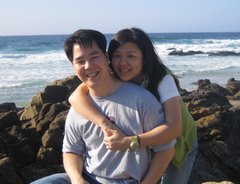Christians know what it means to be righteous. In Genesis, Abram was given a deposit of righteousness because he had faith that though he and his wife were unable to conceive, he believed God's promise. And so we see in the New Testament both James and Paul pointing to Abraham as a guidepost to mark the path of those who seek to be righteous.
But faith in God's promise has a lot of consequences. And those who profess their unity and indivisibility with Christ need to see these consequences and understand how deep their faith needs to run.
See, I learned something recently, and it really clarified a few things to me.
Everything we do has consequences, not just externally but internally. In our daily lives, with our resources and our talents and our time and energy, our actions reinforce or destruct our nature, depending on what we have done (or failed to do).
Now, I am really only talking about Christians and their actions and inactions, for reasons that should be obvious here. Christians can walk the path of the righteous and can also walk a dangerous road that falls away from the true way, and really not even know it.
Again, going back to the OT, we can look at Psalm 14. Here's the NASB translation:
The fool has said in his heart, "There is no God." They are corrupt, they have committed abominable deeds; There is no one who does good.
The LORD has looked down from heaven upon the sons of men to see if there are any who understand, who seek after God.
They have all turned aside, together they have become corrupt; there is no one who does good, not even one.
Do all the workers of wickedness not know, who eat up my people as they eat bread, and do not call upon the Lord?
There they are in great dread, for God is with the righteous generation.
You would put to shame the counsel of the afflicted, but the LORD is his refuge.
Oh, that the salvation of Israel would come out of Zion! When the LORD restores His captive people, Jacob will rejoice, Israel will be glad.
Psalm 14 is a dirge, a lamentation that those whom God had set apart had fallen from the righteous way. But the first sentence seems to be at odds with the other thoughts of the Psalm: who among those whom God had set apart actually dared think that "there is no God"? In this case, the "fool" wasn't an atheist, since the latter would be few and far between during this time. The "fool" was he who acted as if God was not relevant with respect to that area or part of life that the fool wanted to control himself.
And I see this in my own life.
We who have so much, who have so much talent, so much wealth, so many ideas, so much energy and time, we guard these treasures we have amassed as if these were ours to control. We give when we feel stable enough to give, we help when we feel secure enough to help, and we protect ourselves because we have equity in our treasures. And then, we pray to God, that God might help us to keep us safe, to keep us from financial ruin or instability. It is all very foolish for certain, because there is no righteousness in asking God to protect a part of our lives where we do not allow God's sovereignty to reign.
The righteous will put their faith in God, in all things, and to them, God will credit righteousness.
I need to see this and put it into practice.
-David
Sunday, November 16, 2008
Subscribe to:
Post Comments (Atom)

1 comment:
Me, too.
Post a Comment